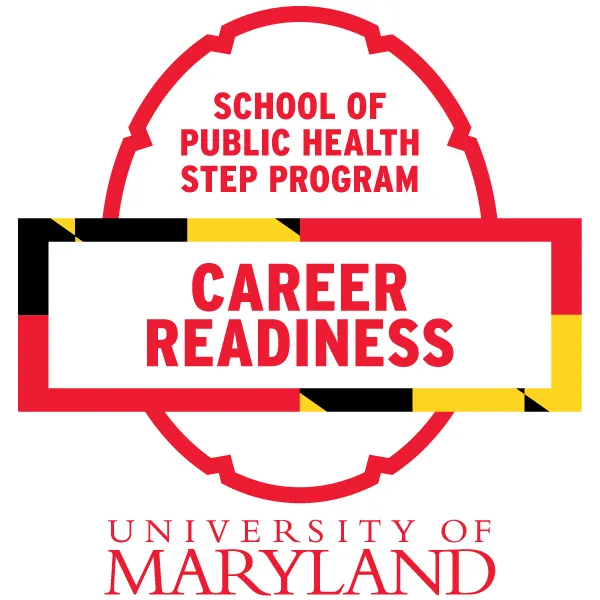- October 15, 2021
- By Sala Levin ’10
For any college student, the transition from an undergraduate routine to the working world can be rocky. Early-morning meetings, networking breakfasts, the nuances of CCing and BCCing can all seem daunting to a young person mostly familiar with coffee-fueled all-nighters and class-free Fridays.
A program in the School of Public Health aims to ease the move by teaching students the skills they’ll need after graduation. After completing a semester of workshops, members of the Students Transitioning into Effective Professionals (STEP) program will earn a digital badge, a credential they can put on their resume or LinkedIn profile to highlight their accomplishment to employers.
Launched as a pilot program in Fall 2019, STEP has exited its initial phase and is launching a digital badge. The program has primarily served students from underrepresented populations, first-generation college students, first-year or transfer students and students with a GPA from 2.0 to 2.9. “Those are the students we identified as those who could benefit from having additional support,” said Tia Cunningham, STEP’s founding program manager.
The official introduction of the digital badge this semester is “a symbol to recognize what (the students) have learned and been able to accomplish,” said Cunningham.

It’s the first in an upcoming collection of UMD-branded badges; others are under consideration, said Doug Roberts, associate dean in the Office of Undergraduate Studies. Four schools and colleges already offer a digital generalist badge, part of a partnership with Capital CoLAB, a network of Washington, D.C.-area universities and businesses.
“Badging is a way for us to pull together a bunch of experiences students might have that are … helping build a specific skill,” he said. As of 2016, according to an Inside Higher Ed article, one in five colleges was issuing digital badges.
The STEP program, which consists of twice-monthly workshops throughout one semester, “felt like a really good environment to be in, a very positive environment,” said Mansi Gosalia ’22, who came to UMD as a transfer student from Montgomery College. As part of the first cohort of students in the STEP program, Gosalia and her fellow “steppers,” as she calls them, learned about personal finance, good interviewing etiquette, resume writing and talking with recruiters. “I felt like I could ask literally anything I wanted and I wouldn’t be judged for what I was asking,” said Gosalia, who remains involved as a peer mentor to current “steppers.”
As part of the School of Public Health, panel representatives, case studies, workshops, assignments and group projects all revolve around public health content, said Cunningham.
This semester, 84 students are taking part in the STEP program—a drastic increase from the roughly 15 who participated when Gosalia joined.
The program helped Gosalia find her way to her first significant internship, in the office of U.S. Sen. Chris Van Hollen (D-Md.), she said. “I don’t think I would’ve been able to put myself out there in the way that I did or think I had the skills necessary for that job if I hadn’t had STEP.”
